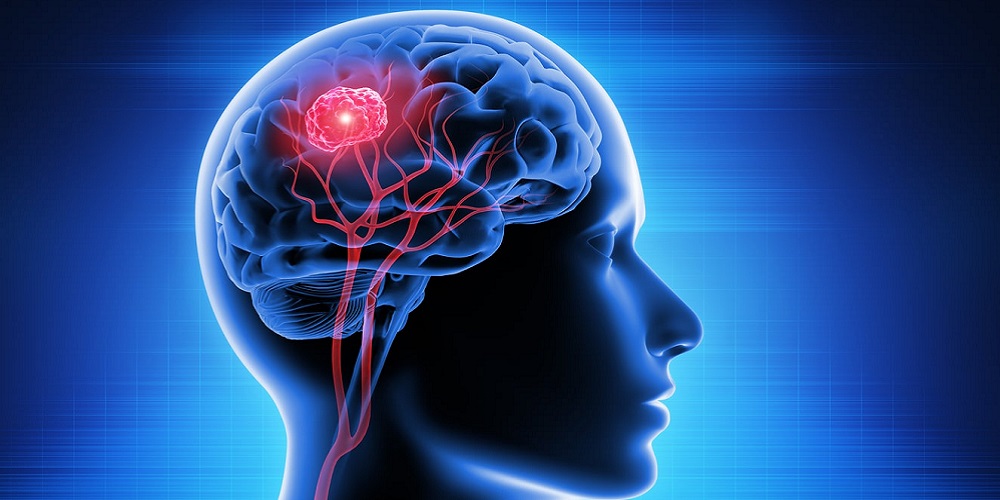Health
Managing stroke’s effect on brain health

Stroke, often called a “brain attack” is a medical emergency that results from a disruption in blood supply to the brain. This can cause brain cell death and possible neurological abnormalities.
Perhaps while a stroke’s physical symptoms are frequently obvious, its impact on cognitive function and brain function can be just as severe and perhaps life-changing.
When a stroke happens, the brain loses oxygen and nutrients, which causes the brain tissue in the afflicted area to die. Numerous neurological deficits, such as paralysis or weakness on one side of the body, trouble speaking or interpreting language, visual issues, and alterations in sensory perception, can result from this. Furthermore, strokes can affect cognitive abilities including
memory, focus, problem-solving, and emotional control.
The size, location, and severity of the stroke, together with the patient’s age, general health, and pre-existing cognitive reserve, all influence the precise impact of the stroke on brain function and cognitive capacities.
While some stroke survivors may have relatively minor deficits that go better with time and therapy, others may endure more significant and persistent problems that call for continuous care and adaption.
To assist stroke patients to restore lost function, regain their independence, and enhance their quality of life, post-stroke rehabilitation is essential.
Programs for rehabilitation are customized to meet the specific needs of each patient and may involve physical therapy to increase strength and mobility, occupational therapy to restore daily living skills, speech therapy to address communication issues, and cognitive therapy to improve memory, focus, and problem-solving abilities.
Support from friends, family, and medical experts is crucial for stroke survivors as they traverse the mental, emotional, and physical obstacles of recovery in addition to official rehabilitation programs.
While healthcare providers may give direction, knowledge, and connections to resources that support the best possible recovery and well-being, social support can offer inspiration, motivation, and helpful support with everyday tasks.
It is critical to understand that stroke affects brain health in more ways than just the physical; it also affects emotional and psychological health. As they get used to changes in their skills and way of life, stroke survivors may feel depressed, anxious, frustrated, or melancholy.
A key component of comprehensive stroke care is meeting these emotional and psychological requirements, which may greatly enhance the general quality of life for stroke patients and those who are caring for them.
In summary, stroke significantly affects the quality of life, cognitive function, and brain health of afflicted people as well as their relatives.
We can assist stroke survivors in overcoming the obstacles of recuperation and reestablishing their lives with fortitude, dignity, and hope by providing post-stroke rehabilitation, support, and resource access. It is important to promote all-encompassing stroke care that takes into account the many requirements of stroke survivors and encourages the best possible outcomes.
Health
Men who desire healthy children should marry before 40, expert advises

By Francesca Hangeior
Men who wish to father healthy children have been advised to get married and start a family before the age of 40.
The President of the Nigerian Association of Urological Surgeons, Professor Nuhu Dakum, revealed that ageing negatively affects sperm quality, thereby increasing the chances of passing on genetic disorders to offspring.
“Sperm quality reduces with age. The count, motility, and morphology are all adversely affected. Also, there is an increase in damage to the sperm DNA, thus predisposing babies to genetic diseases,” he explained.
The consultant urologist further stated that while the age at which sperm quality varies, “generally it’s more significant from about 40 years of age.”
He attributed factors including “biological changes with age, lifestyle, e.g., smoking and alcohol, unhealthy nutrition, occupational exposure to toxins, etc.”
Dakum’s statement follows a recent viral conversation on X, formerly Twitter, that older men have weak sperm.
The tweet by Queen read, “Older men are more likely to give you children with genetic mutations like dwarfism, autism, Down syndrome, and schizophrenia.
“Their weak sperm has a higher risk of causing mutations in kids. Try your best not to have kids with their sperm.”
According to the Texas Fertility Centre, sperm quality and quantity decline over time, leading to age-related male infertility.
However, Healthline, a health portal, pointed out that sperm quality declines significantly in men over the age of 50, with factors such as sperm count and lifestyle habits being responsible for the deterioration.
Speaking further, Dakum stated that older men who desired to have healthy children could do so if they maintained good sperm health, noting that living healthily improves life generally and thus sperm health.
He added, “There may not be much to prevent it if the man is already old, but living healthy improves general and thus sperm health. However, genetic selection in the embryo or sperm checks for sperm damage can be done to reduce the chances, but these are expensive and not widely available. Donor sperm for such couples is also an alternative.”
Health
Stop patronising untrained birth attendants, LASG warns pregnant women

By Francesca Hangeior
The Special Adviser to the Lagos State Governor on Health, Dr. Kemi Ogunyemi, has cautioned residents against patronising untrained birth attendants.
Ogunyemi gave the warning during a medical outreach organised by the Simisola Alabi Foundation, an initiative focused on enhancing maternal and child health across Lagos State.
Speaking during the medical outreach held on Saturday in the Obalende area of Lagos, the Special Adviser to the Governor on Health, Kemi Ogunyemi, said, “Maternal deaths happen too often because women avoid hospitals.
“Health insurance removes the financial barrier to quality care.”
She reaffirmed the state government’s commitment to making healthcare both affordable and accessible through the expansion of its health insurance programmes.
Beyond maternal care, Ogunyemi noted that the outreach served as a vital opportunity to address other pressing public health concerns.
“Many in this community didn’t know about the diphtheria outbreak. Education saves lives, and this event provided a perfect setting to share crucial health information,” Ogunyemi added.
Ogunyemi also called on men to play an active role in promoting family health, emphasising that healthcare decisions are a shared responsibility.
“Whether it’s health insurance or family planning, it’s a shared responsibility. Men must not be bystanders,” she said.
Earlier, the founder of the Simisola Alabi Foundation, Simisola Alabi, shared the inspiration behind the outreach, stressing the transformative impact of community support.
“It’s not because I have so much money; it’s because I understand the power of giving. Helping one mother today could uplift an entire generation tomorrow,” Alabi explained.
She pointed out that the programme placed particular focus on tackling stunting, a major but often overlooked issue affecting children’s physical and cognitive development.
“Stunting affects not just height but brain development and life outcomes. By empowering mothers today, we’re shaping a better future for our children,” she noted.
Alabi also urged corporate organisations and individuals to direct their social responsibility efforts to underserved communities.
“The real heartbeat of Lagos is in communities like Obalende, not just the affluent neighbourhoods. Channel your CSR here where it truly matters,” she said.
Health
Uncontrolled diabetes in pregnancy may lead to cataracts in children – Ophthalmologists

By Francesca Hangeior
Contrary to the belief that cataracts mainly occur in older adults, eye specialists say babies and children could be born with it or develop the eye disease due to certain health conditions.
The ophthalmologists said pregnant women with uncontrolled diabetes and other metabolic diseases might give birth to babies with cataracts, though there were other causes of congenital cataracts in children.
The experts said it was important for pregnant women to have good antenatal care to reduce the risk of pregnancy complications that could affect the eyes of their babies when they are born.
Besides diabetes in pregnancy, the ophthalmologists also disclosed that certain infections in pregnancy like rubella (German measles) can lead to a woman giving birth to a child with cataracts while advising teenage girls to go for rubella vaccination.
They noted that cataracts in children could either be by birth (congenital) or acquired after birth, warning that an injury to the eye could cause cataracts in children.
However, the physicians who spoke during an exclusive interview with PUNCH Healthwise, said not all cataracts in babies and children had a known cause.
The World Health Organisation says cataract is a clouding of the lens in the eye that normally affects vision, stressing that cataract is the most common cause of blindness and visual impairment often related to aging.
The global body, however, said, “Occasionally children are born with the condition, or a cataract may develop following an eye injury, or as a result of inflammation or other diseases, such glaucoma and diabetes. Sometimes, the development of cataracts is linked to steroid use or it may develop after exposure to some types of radiation.”
Speaking with our correspondent, a paediatric ophthalmologist, Dr. Halima Alimi, also disclosed that some cataracts in children could also be hereditary, assuring that children with significant cataracts could be effectively treated by surgery.
The eye expert, who is the Executive Director of Restore Foundation for Child Sight, a non-government organisation that advocates for improved eye care for children, said parents should ensure that their babies go for routine eye checks after six months of birth to detect the condition early before it negatively impacts on the overall growth and development of the child.
Giving insight into why children also suffer from cataracts like older people, Alimi explained, “Why children suffer cataracts is because of the variety of things that potentially upset the clarity of the lens of a child’s eye and so we have said that it can be congenital or acquired.
“Part of the congenital causes of cataracts are children whose mothers suffer certain infections while they are pregnant with them which we call intrauterine infections. Most of them are viruses and so there are a host of diseases that pregnant mothers can have. Top on the list is something called rubella. It is a German measles.
“It is a sort of measles but a little bit different from the popular measles that is known. It is caused by the rubella virus. So when a pregnant woman is affected by German measles, the virus will go ahead to cross the placenta and infect the baby depending on the stage of the pregnancy at which it infects the baby.
“If it is in the early stage of the pregnancy when the eyes are still developing, it can cause congenital cataracts as well as other problems that the child may be born with.
“This is one of the most common causes of infective cataracts in children born with it. And then also children whose mothers have certain metabolic diseases such as uncontrolled diabetes, the children themselves if they are born diabetic and other metabolic diseases, can cause cataracts as well. “
According to an international non-governmental organisation that works with partners in developing countries to treat and prevent avoidable blindness, Sightsavers, cataracts are one of the leading causes of visual impairment and blindness in children.
Alimi also pointed out that there are a variety of other causes of cataracts in children that are not congenital but are acquired.
“Things like injury. We all know that children can suffer eye injury from moderate to severe. So if an injury is severe enough it can result in cataracts just by having an injury. Injury is the cause of cataracts occurring in one eye in children. Inflammation inside the eye can lead to cataracts in children if not handled effectively. That is why we discourage self-medication”, she said.
The ophthalmologist also said genetically inherited diseases and indiscriminate use of steroids can cause cataracts in children.
On signs of cataracts in children, Alimi identified delayed milestones such as sitting, social smile, walking, and standing as some of the early indications, urging patients to establish the habits of routine and annual eye checks for their children..
According to her, squinting during bright light, a white dot within the eye, abnormal movement of the eye, not focusing when looking, and squinting the eyelids when there is sunlight are also some of the signs of cataracts i.n children
Commenting on the treatment, the eye specialist said cataracts when they are significant are treated surgically, adding also that vision rehabilitation for the children after the surgery will enable them know how to use their spectacles and how to maintain good eyesight.
She said cataracts in children could be prevented through immunisation in pregnancy, optimal antenatal care, prevention of injury, avoidance of drug abuse, vaccination of teenage girls against rubella.
A Consultant Ophthalmic Surgeon, Dr. Folasade Fasina, told PUNCH Healthwise that cataract is the most common cause of blindness in Nigeria.
The ophthalmologist disclosed that cataract is treated by the removal of the cloudy lens, adding that this is replaced with a clear artificial lens.
She stressed that the removal can only be done through surgery.
Fasina explained, “There are various methods of removal but all are surgical.
“Diagnosis is made when a doctor, an eye specialist, examines and carries out some tests on a patient complaining of blurred vision.
“Cataract is treated by an ophthalmologist who performs surgery on the eye. When the cataract is still small, vision can be improved with prescribed glasses, but the definitive treatment is surgery.”
In a 2021 study published in ScienceDaily, researchers from Denmark found that mothers who have diabetes before or during their pregnancy are more likely to have children who go on to develop eye problems.
The researchers analysed the associations between maternal diabetes before or during pregnancy and the risk of high refractive error, conditions in which there is a failure of the eye to properly focus images on the retina.
They advise that early screening for eye disorders in the children of mothers with diabetes may play an important role in maintaining good eyesight health.
-

 Opinion2 hours ago
Opinion2 hours agoRIVERS, WIKE, FUBARA, AND THE WAY FORWARD
-

 News22 hours ago
News22 hours agoReps Minority Caucus condemns unlawful detention of VDM, demands his immediate release
-

 News12 hours ago
News12 hours agoMinistry denies awarding N13bn contracts without due process
-

 News12 hours ago
News12 hours agoFULL STEPS: How to check 2025 JAMB results
-

 News6 hours ago
News6 hours agoVDM may be released on Tuesday
-

 News24 hours ago
News24 hours agoWATCH Your family Lawyer’s last episode on how to end marriage
-

 News12 hours ago
News12 hours agoCourt halts Abuja multi-million naira market project
-

 News20 hours ago
News20 hours agoCourt delivers another judgement in favor of Amaewhule, others on Rivers Assembly crisis





